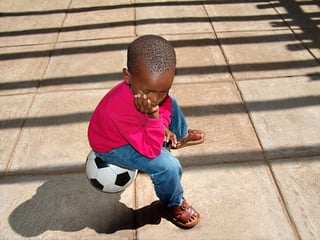Using Failure to Boost Success in Preschoolers
From adults’ perspectives, preschool is a constant parade of treats and delights that's interrupted by naps and hugs. From preschoolers’ viewpoints, though, days bring highs and lows — success and failure. Teaching our children to recover from failure can make them more successful.
 Resilience
Resilience
The American Psychological Association (APA) recommends that parents help their children build resilience, which the APA defines as “the ability to adapt well to adversity, trauma, tragedy, threats or even significant sources of stress ..."
The APA recommends watching your preschooler for signs of fear and anxiety (over anything, large or small) and using play, art, and make-believe to help her or him express concerns. Even in failure, keep up routines, like a story at bedtime. This minimizes the shock of a change in your child’s daily pattern (the change being a perceived failure).
Pathway to Maturity
PBS Parent’s resident expert, Dr. Kenneth Barish, points out that a child’s low point — a moment in their day when they're feeling angry, anxious or sad — is a great opportunity for a parent to pave the pathway to emotional maturity.
Preschoolers may not realize emotions are momentary. Parents can help discouraged children learn any setback is temporary; embarrassment will soon evaporate. Nurturing during these “moments of repair” helps children become emotionally self-regulating.
Dr. Barish recommends a routine at bedtime that includes 10 minutes of emotional talk, during which the parent mostly listens. Reflect back your child’s feelings, emphasizing the commonality of human failings: “I remember when I fell off the swings, too, and all the kids laughed at me.”
Land the Helicopter
Avoid being a "helicopter" parent. Dr. Kenneth Ginsburg, pediatrician and author of A Parent’s Guide to Building Resilience in Children and Teens: Giving Your Child Roots and Wings, has a list of seven “Cs” to guide parents in boosting their children’s success in the face of failure:
- Competence — Separate your desire to protect your children from their opportunities to show competence.
- Confidence — Provide authentic, not overly effusive, praise.
- Connection — Allow your child to express all emotions.
- Character — Show your child how behavior (good and bad) affects others.
- Contribution — Model generosity and serving others.
- Coping — Guide your child to develop appropriate coping strategies.
- Control — Use discipline to teach that actions have consequences.
How do you help your preschooler bounce back from failure? At Kids Konnect we like to help parents learn from each other. Please comment below.
